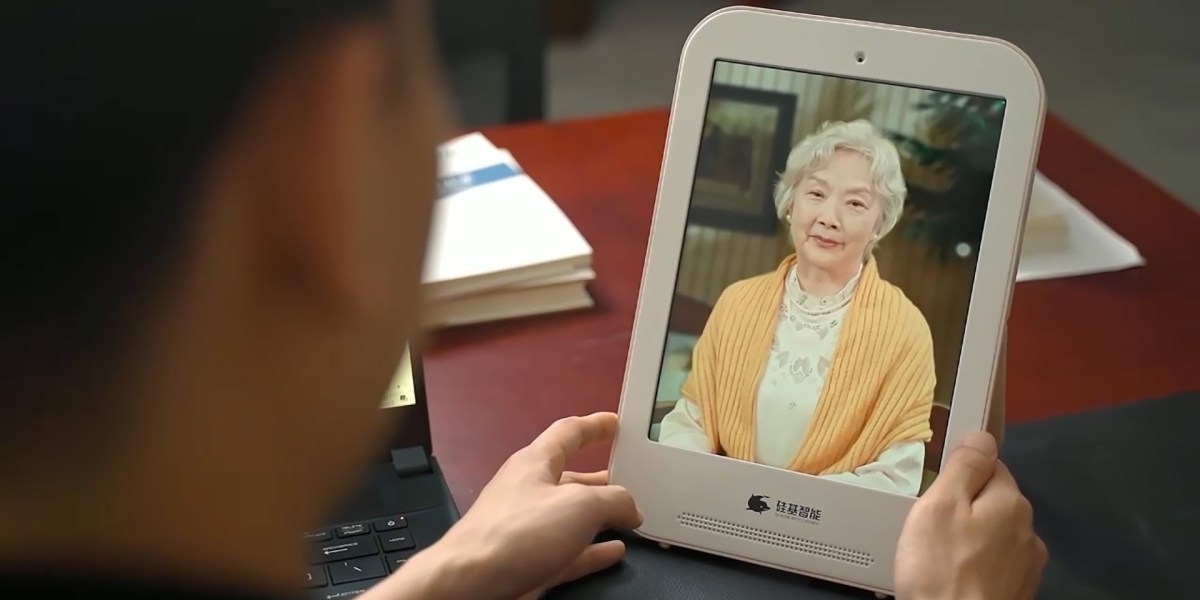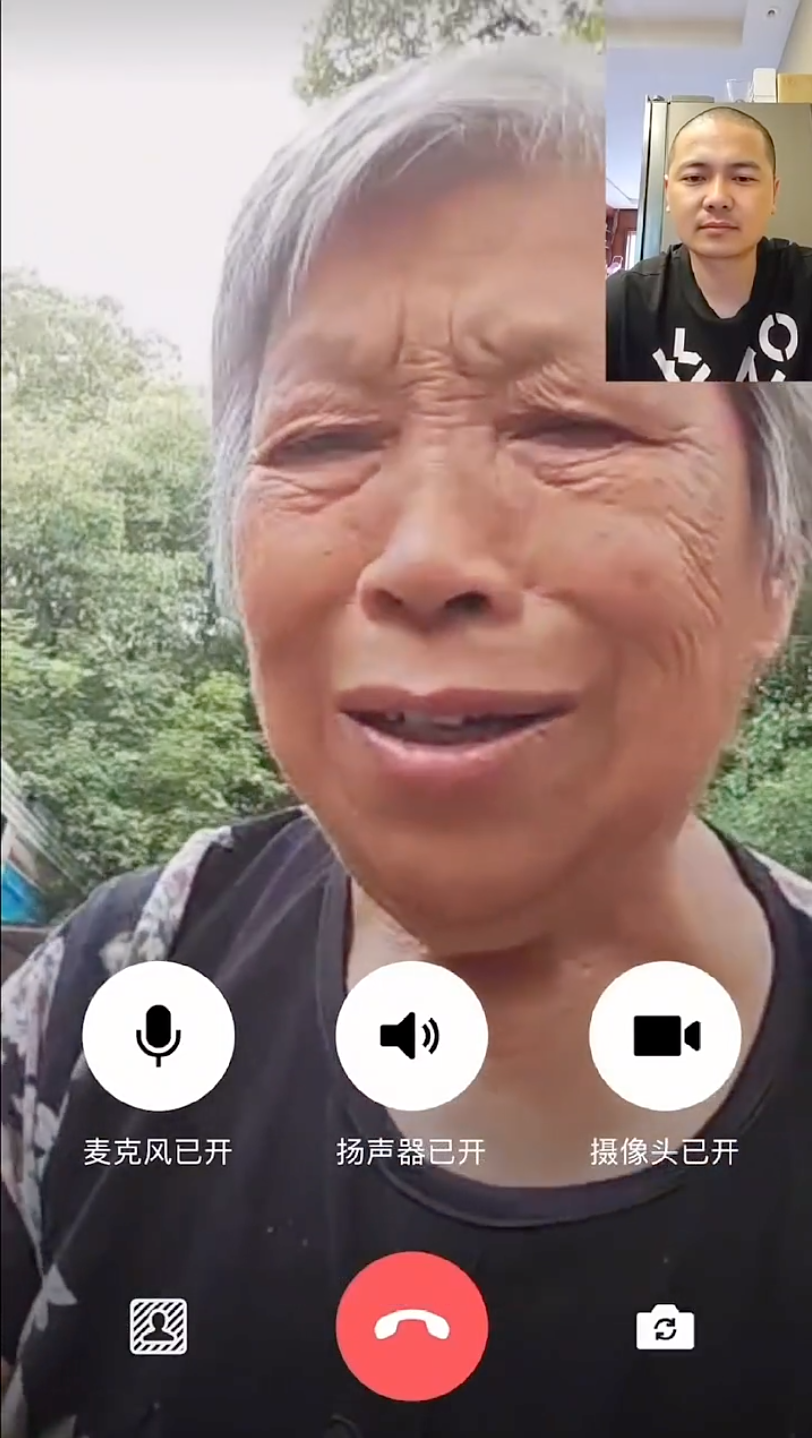Deepfakes of your dead loved ones are a booming Chinese business


In Chinese homes, it’s common to put up a portrait of a deceased relative for a few years after the death. Zhang Zewei, founder of a Shanghai-based company called Super Brain, says he and his team wanted to revamp that tradition with an “AI photo frame.” They create avatars of deceased loved ones that are pre-loaded onto an Android tablet, which looks like a photo frame when standing up. Clients can choose a moving image that speaks words drawn from an offline database or from an LLM.
“In its essence, it’s not much different from a traditional portrait, except that it’s interactive,” Zhang says.
Zhang says the company has made digital replicas for over 1,000 clients since March 2023 and charges $700 to $1,400, depending on the service purchased. The company plans to release an app-only product soon, so that users can access the avatars on their phones, and could further reduce the cost to around $140.
SUPER BRAIN
The purpose of his products, Zhang says, is therapeutic. “When you really miss someone or need consolation during certain holidays, you can talk to the artificial living and heal your inner wounds,” he says.
And even if that conversation is largely one-sided, that’s in keeping with a strong cultural tradition. Every April during the Qingming festival, Chinese people sweep the tombs of their ancestors, burn joss sticks and fake paper money, and tell them what has happened in the past year. Of course, those conversations have always been one-way.
But that’s not the case for all Super Brain services. The company also offers deepfaked video calls in which a company employee or a contract therapist pretends to be the relative who passed away. Using DeepFace, an open-source tool that analyzes facial features, the deceased person’s face is reconstructed in 3D and swapped in for the live person’s face with a real-time filter.

SUPER BRAIN
At the other end of the call is usually an elderly family member who may not know that the relative has died—and whose family has arranged the conversation as a ruse.
Jonathan Yang, a Nanjing resident who works in the tech industry, paid for this service in September 2023. His uncle died in a construction accident, but the family hesitated to tell Yang’s grandmother, who is 93 and in poor health. They worried that she wouldn’t survive the devastating news.





